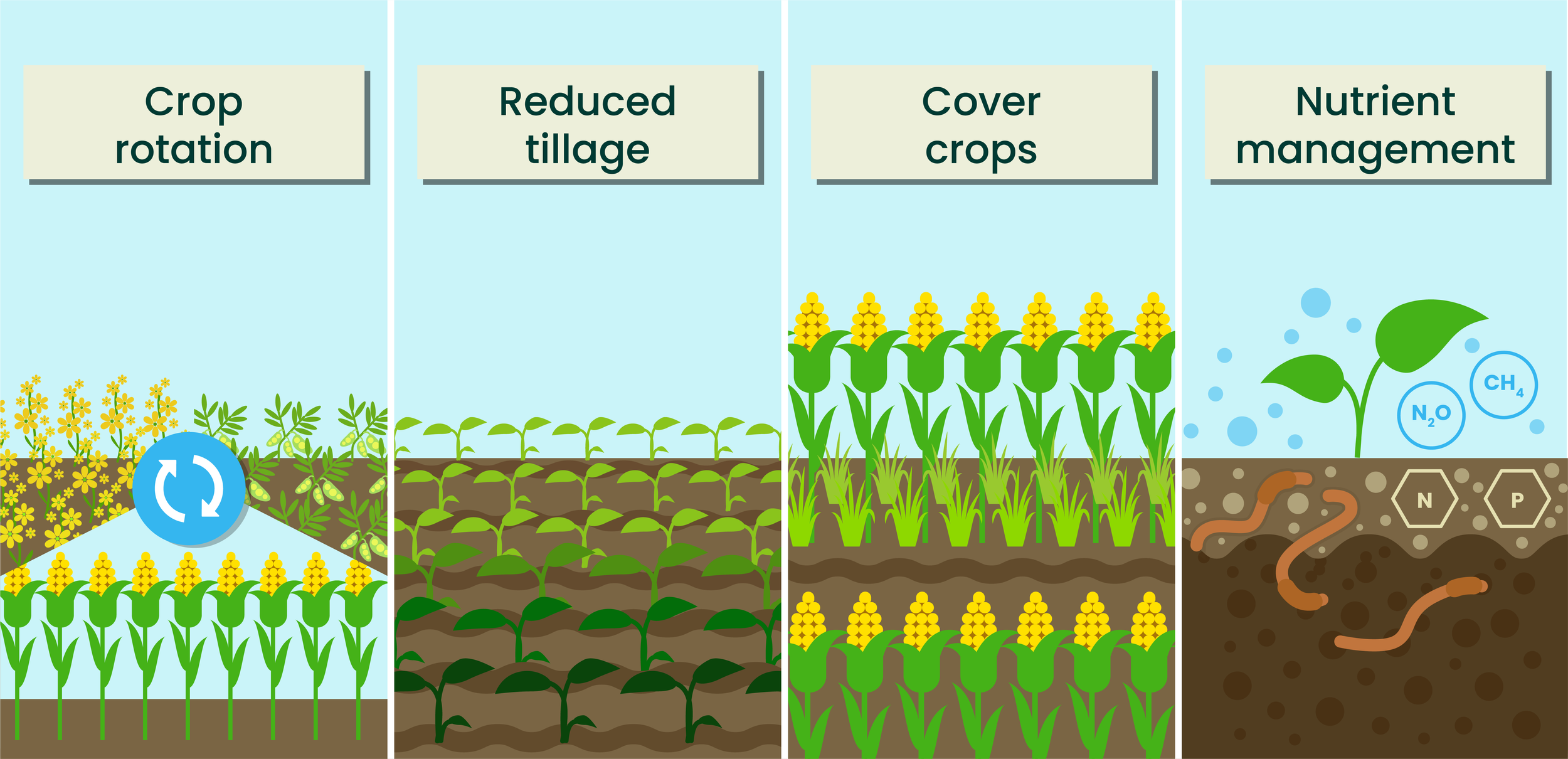Sustainable farm management practices
Climate and water smart farming practices can improve agricultural productivity, while sequestering carbon, improving soil health and reducing nutrient pollution
Sustainable or regenerative farming includes a range of cropping practices like planting cover crops like winter wheat or rye in between cropping seasons, diversified crop rotations, reduced tillage and nutrient management. These practices fall under the broad umbrella on climate-smart agriculture.
Practices like planting cover crops after crop harvest protects the soil from erosion, and can increase soil organic carbon storage. However, cover crops can also sometimes increase greenhouse gas emissions due to availability of easily degradable residues. Nitrogen management includes applying the right amounts, at the right time, and in the right place can reduce greenhouse gas emissions and nutrient leaching, while maintaining agricultural productivity.
"It is important to evaluate the net benefits derived from these practices, including their impact on nitrous oxide emissions, a significant greenhouse gas. This information is necessary to evaluate potential net-zero roadmaps for agriculture,” says co-investigator Claudia Wagner-Riddle, with University of Guelph, and internationally acclaimed expert on greenhouse gas emissions. “This project provides an opportunity to do so by collaborating with a multidisciplinary team."
Claudia Wagner-Riddle, University of Guelph
How do the co-benefits and tradeoffs of various practices vary with soil type, climate and season? Can we identify spatially varying practices that will unlock benefits for water and climate while sustaining economic profits?
What will SOLUTIONSCAPES do?
SOLUTIONSCAPES will enable the identification of spatially varying sustainable farm management practices that maximizes the benefits for climate, water and productivity. We will use a combination of data synthesis and numerical models to quantify co-benefits and tradeoffs associated with sustainable farm management practices in different climates, on different soil types, and with different land management practices




